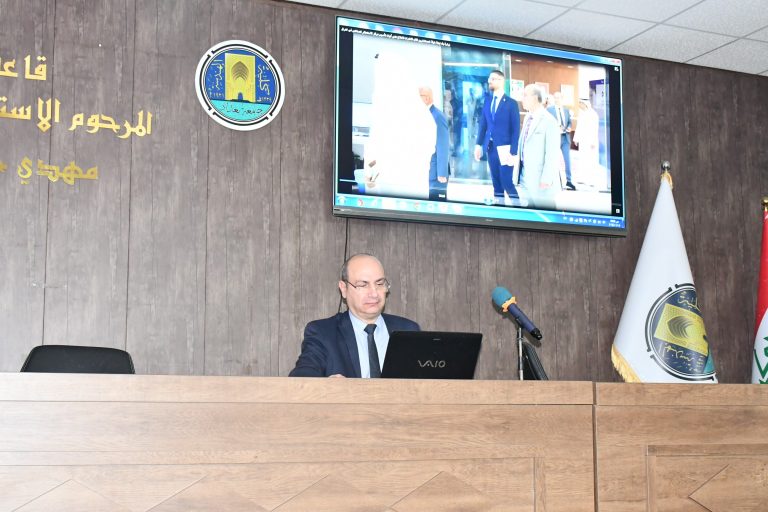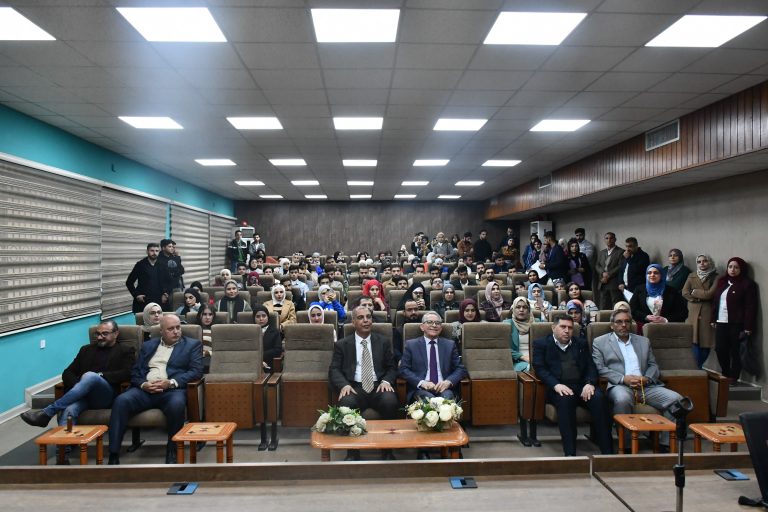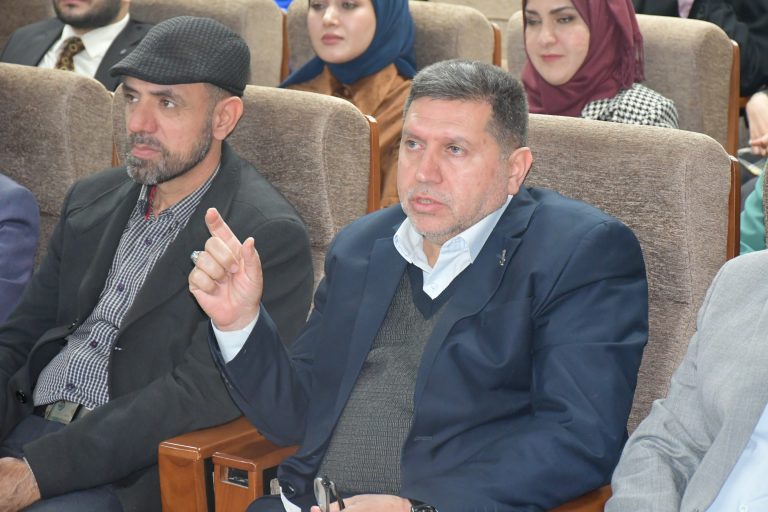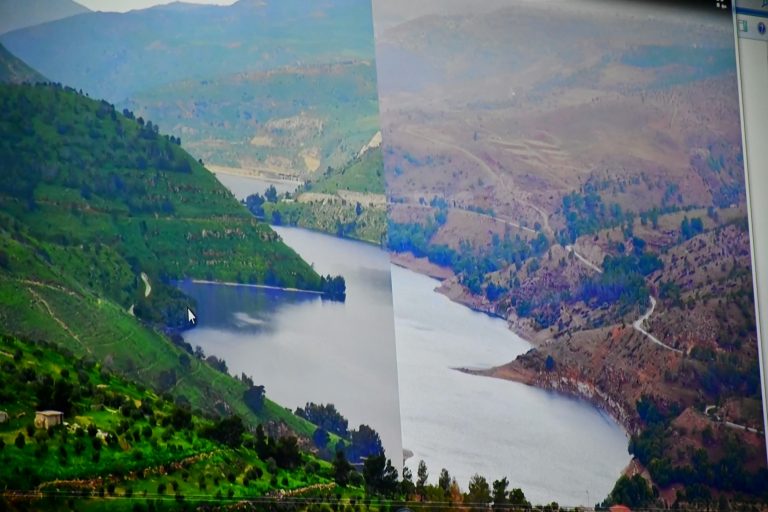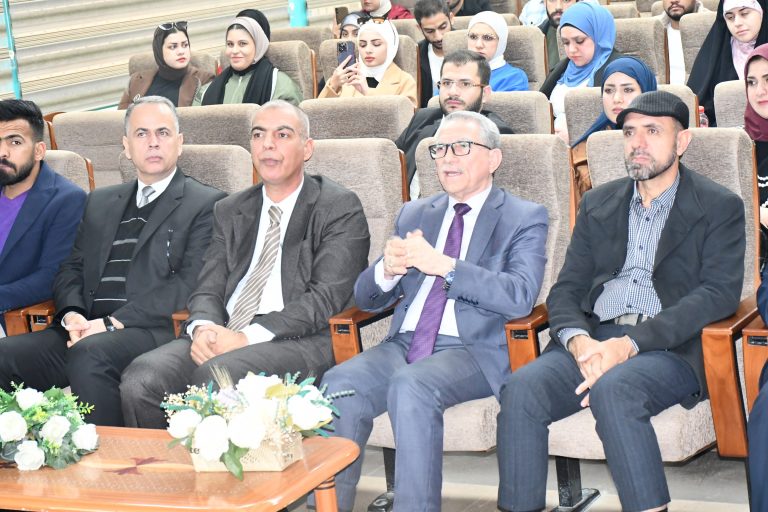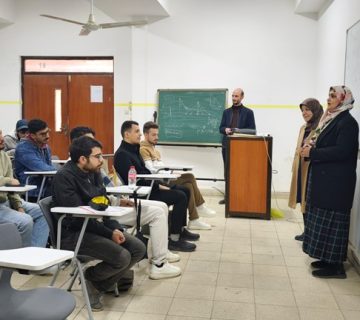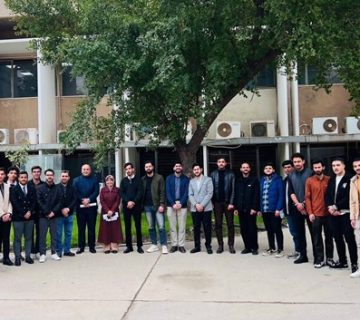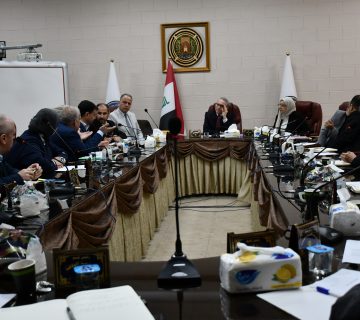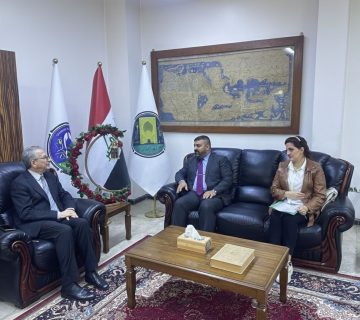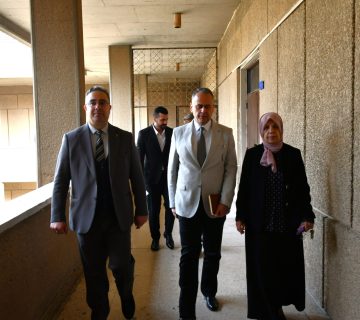Within the scientific activities of the Environmental Engineering Department at the University of Baghdad, and under the patronage of the esteemed Dean of the College of Engineering, Professor Dr. Ghassan Hameed Abdul-Majeed, the department organized a lecture titled “Confronting the Effects of Climate Change in Iraq through Artificial Rainfall.” The lecture was delivered by Assoc. Prof. Dr. Haider Mohammed Abdulhameed in Mehdi Hantoush Hall on Thursday, January 4, 2024, at 10:00 AM, in the presence of the respected dean, faculty members, and students.
The lecture comprised three main axes. The first highlighted the issue of water storage and enhancing water security in Iraq. The decrease in water levels in dams, lakes, and rivers poses a significant challenge, impacting agricultural and livestock resources and threatening environmental sustainability.
The second axis discussed strategies for addressing and confronting the impacts of climate change in Iraq, emphasizing the role of artificial rainfall as one possible option to improve water availability. Dr. Haider Mohammed Abdulhameed explained the techniques involved in artificial rainfall, both traditional and modern.
Artificial rainfall is a process that stimulates rain by human intervention in atmospheric processes. Typically, this involves forming vapor clouds by ionizing the atmosphere, free from any environmentally harmful chemicals. The process is executed using aircraft to spray substances onto semi-dry clouds, following a pre-prepared plan for rain to fall in specific regions.
The third axis presented reports detailing the process of artificial rainfall, its necessity for environmental recovery, and its potential impact on climate change. Dr. Abdulhameed recommended the urgent implementation of artificial rainfall operations in Iraqi territories to improve weather conditions, reduce temperatures, increase green areas, combat desertification, and enhance overall environmental sustainability.
The lecture concluded with active discussions among the attendees, exchanging views on how to deal with the phenomenon of desertification. Dean Ghassan Hameed commended the lecture’s topic, expressing its crucial importance given the current circumstances.

